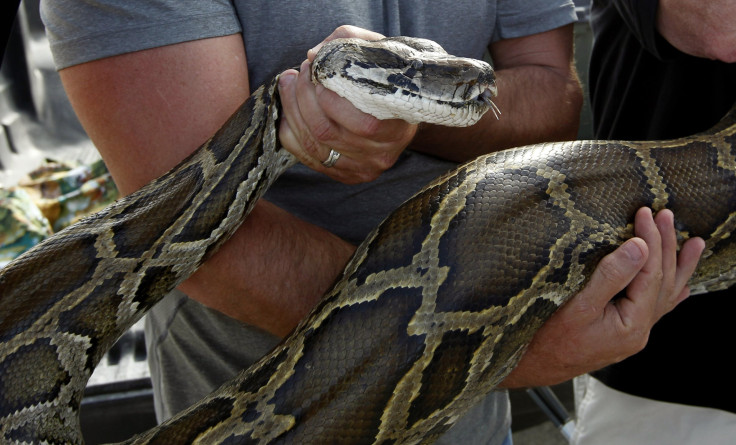USDA Testing Specially Designed Trap To Catch Everglades Pythons

As the Burmese python population continues to balloon in the Florida Everglades, U.S. wildlife officials are looking to employ a new method in the fight to control the snakes. Biologist John Humphrey -- along with Tomahawk Live Trap -- has designed a new trap to catch the pythons, according to the University of Florida’s WUFT-FM.
Humphrey works for U.S. Department of Agriculture’s National Wildlife Research Center station in Gainesville, Fla., and received monetary from the USDA’s Animal and Plant Health Inspection Service agency to cover the costs of the trap’s development. Each trap used for testing cost around $80.
“It took me about an hour to think of the design, and it took me a couple [of] days to actual[ly] make a mockup of the design,” Humphrey said. “To me, it was a pretty quick response in how to deal with this because the one thing about pythons that is unique compared to any other native snakes is that they’re larger, heavier and longer than our biggest native snakes on average.”
Researchers have struggled to build a trap that successfully captured pythons without also trapping other local animal species such as armadillos and raccoons. But Humphrey is confident his design will help solve this problem, nabbing only the pesky snakes infesting the Everglades. The cages are five feet long and fabricated from galvanized steel wire with a net located on one end of the cage.
The traps will be tested at the National Wildlife Research Center station in Gainesville in an enclosure that already holds five pythons. According to Humphrey, the tests will help researchers “improve and find out the limitations and the strengths of this trap and how it can be used in the field.” The testers will attempt to bait the pythons with the scents of small mammals such as rats, while camouflaging the traps to look like pipes or similar small spaces that the snakes like to hide in, Sky News reported.
The USDA received a patent for the trap in August.
© Copyright IBTimes 2024. All rights reserved.






















